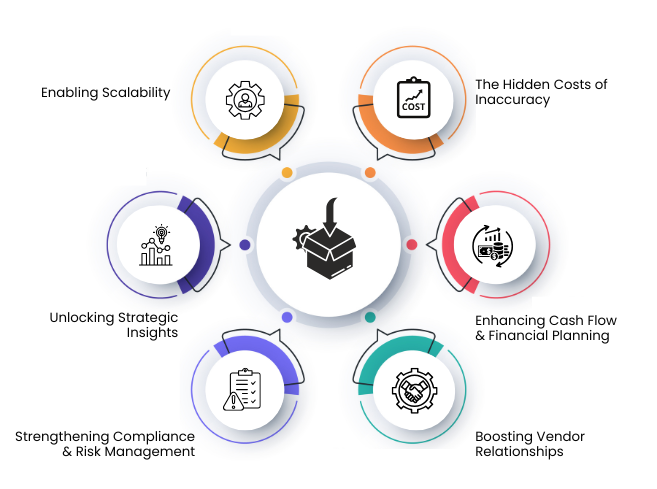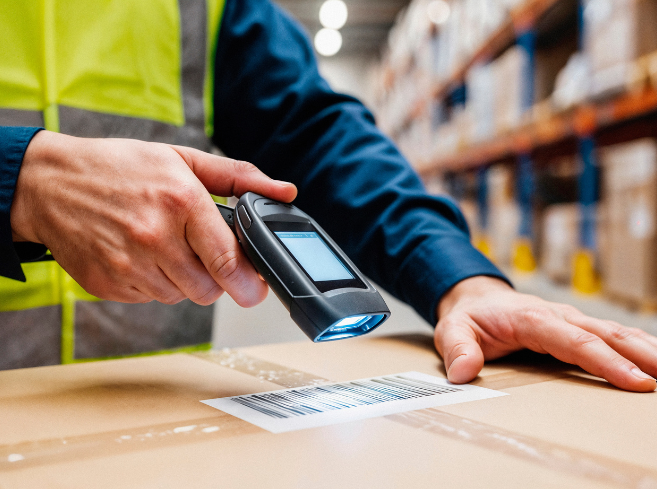Freight bill processing might seem like a routine back-office function, but for logistics companies, it’s a financial heartbeat. Every bill carries critical data that affects profitability, carrier relationships, compliance, and decision-making. When those bills are processed with precision, the benefits ripple across the business, far beyond simple cost savings. The right process can protect margins, strengthen partnerships, and equip leadership with the insights needed to run a more resilient supply chain.
1. The Hidden Costs of Inaccuracy
Even small errors in freight bills, such as incorrect weight, misapplied rates, or duplicate charges—can ripple across your financial and operational systems. Over time, these inaccuracies can erode profit margins, complicate vendor relationships, and lead to disputes that slow down payments.
Accurate freight bill processing eliminates these leaks, ensuring every invoice reflects the correct charges, timelines, and terms.
2. Enhancing Cash Flow & Financial Planning
Accurate, timely freight bill audits and processing provide businesses with a clear view of transportation spend. With precise data at your fingertips, forecasting becomes easier, and cash flow planning becomes more reliable. This ensures your organization can allocate resources to growth initiatives rather than firefighting billing issues.
3. Boosting Vendor Relationships
Carriers and logistics partners value reliability and transparency. Prompt, error-free payments build trust, leading to better contract terms, improved service levels, and stronger long-term partnerships. Reduced disputes also free up time for collaboration rather than conflict resolution.
4. Strengthening Compliance & Risk Management
Regulatory compliance in logistics isn’t optional, it’s essential. Accurate freight bill processing helps businesses maintain compliance with industry regulations, contractual terms, and internal controls. This proactive approach reduces legal and financial risks and safeguards your reputation in the market.
5. Unlocking Strategic Insights
Every freight bill contains valuable data on routes, carriers, costs, and service performance. When processed accurately, this information can be analyzed to uncover trends, negotiate better rates, and identify opportunities for supply chain optimization.
The result? Smarter decision-making that drives competitive advantage.
6. Enabling Scalability
As your business grows, the volume of freight bills multiplies. Without a robust, accurate processing system, scaling up can introduce more errors and inefficiencies. Implementing streamlined, technology-driven freight bill management ensures your processes can handle growth without sacrificing accuracy or speed.

How Vee Technologies Ensures Freight Bill Accuracy and Efficiency
Freight bill processing is not just a task, it’s a precision-driven operation designed to protect margins, strengthen vendor trust, and give businesses the clarity they need to make smarter decisions. Our approach blends advanced technology with skilled teams, converting manual processes into automated rating and EDI invoice submission for faster turnaround and measurable cost savings.
We manage freight bill processing across land, sea, and air, including LTL, TL, and parcel shipments, with a focus on accuracy, consistency, and visibility. Here’s how our process creates results that matter:
First-Level Verification & Data Entry: Every freight bill is captured, checked for duplicates, and stored securely warding double payments and cutting dispute resolution time.
Second-Level Data Indexing: Quick and accurate indexing ensures records are organized and accessible, making audits and financial reporting faster and easier.
Advanced Auditing: Bills are automatically cross-checked against contracted carrier rates to detect overcharges before they hit your bottom line.
Discrepancy Resolution: Any mismatches are reconciled, ensuring you pay exactly what is owed, no more, no less.
High-Value & Accessorial Audits: Additional scrutiny for larger invoices or high accessorial charges ensure big-ticket errors don’t slip through unnoticed.
Our ability to acquire, match, and integrate freight bill data turns routine transactions into a valuable source of insight. The outcome is a leaner, more transparent, and more financially resilient logistics operation, ready to scale without sacrificing accuracy or speed.


